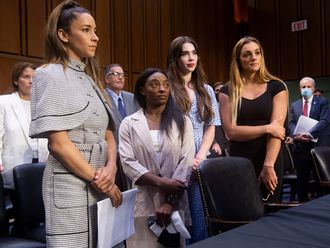United States President Barack Obama announced a wide range of unilateral executive actions on Thursday night which amount to a sweeping reform of what he called the “broken” American immigration system. Obama said he had tired of waiting for an intransigent Congress to pass any kind of comprehensive immigration reform. The president made no secret of his frustration with the House of Representatives, and struck out at Republican congressional leaders for failing to bring legislation on immigration reform to a vote. This is what he announced:
Relief for some undocumented immigrants
The headline section of the executive action announced Thursday was a huge expansion in programmes for those who were brought into the US as children, and an even bigger expansion for illegal immigrants who are the parents of US citizens or green-card holders.
The changes will:
Expand the Deferred Action for Childhood Arrivals programme (Daca), a 2012 programme which has provided relief from deportation to around 580,000 people brought into the US as children by removing the age cap on eligibility, currently set at 31. This would expand the population of those who can seek protection by 290,000, to around 1.5 million, according to the Migration Policy Institute (MPI).
Work authorisation for those eligible for Daca will also be extended, from two years to three.
Relief will also be extended to those who came to the US illegally, but are the parents of US citizens and green-card holders. Undocumented immigrants who have been here at least five years will now be allowed to stay if they have a child who is a US citizen or legal permanent resident. The MPI estimates this will affect approximately 3.7 million people.
Border Security
Obama’s plan still leaves more than 6 million undocumented immigrants in the US who are eligible for deportation. But it will ease the pressure somewhat on illegal immigrants who entered the country before January 1, 2014 by shifting the way law enforcement and border security operate.
The DHS will:
Strengthen border patrols, with three new cross-agency task forces — southern maritime, southern land border and investigative — to work on preventing people crossing illegally into the country, and raise pay for some immigration officers.
But after January 5, 2015 — when the new guidance comes into effect — the Department of Homeland Security will:
Revise its priorities to focus more on threats to national security, including gang members and convicted felons. Illegal immigrants who are convicted of “significant or multiple misdemeanours” will be second-tier priorities, and those who have disobeyed an order of removal after January 1, 2014 will be third-tier.
People who entered the US illegally before January 1, 2014 who have not been convicted of a serious offence will now not be priorities for removal unless an ICE Field Office Director feels it would serve an “important federal interest” to do so, though it is key to note that this language is hazy and open to interpretations. Obama said, however, that he wanted the DHS to deport “felons, not families.”
The DHS will also:
End the controversial “secure communities” programme, which partnered with state and local law enforcement as well as a database of biometrics to find illegal immigrants to deport. Under “secure communities”, the fingerprints of those booked into jails were sent to the immigration services, so even a wrongful arrest could lead to deportation.
Skilled immigrants, soldiers, and students
Obama’s action also looked at changing the way that high-skilled workers, entrepreneurs, and students can enter the country.
These include:
Streamlining the process of getting employment-based visas, effectively making it easier for those moving to the US to work to use visas such as the H-1B, and the L-1B to smooth over the enormous backlog of green cards caused by the caps set by Congress in 1990.
Reforming the “Optional Professional Training” period for foreign students. Students can now apply for 12 additional months’ visa, or 29 months in science and technology field. The executive announcement does not extend the programme, but mandates that it be “evaluated, strengthened, and improved,” and expand the number of degree programs eligible.
Immigration services have also been tasked with proposing a programme that will permit entry to inventors, researchers, and founders of start-up enterprises, who have either recieved start-up funding from US investors or who “hold the promise of innovation and job-creation.”
Expanding the scope of the “parole-in-place” programme, which would help ease entry into the US for those seeking to enlist in the US armed forces, and their families.












